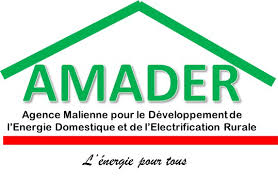Mali: Rural Electrification
Program Overview
Lack of access to modern energy can undermine efforts to eradicate poverty. The impacts are wide ranging, including on health, education, food security, gender equality, livelihoods, and poverty reduction. The Government of Mali is working to improve access, especially for rural communities, and increase the share of renewable energy in the national electricity mix.
Carbon revenues from Ci-Dev will help foster private sector participation in Mali’s energy sector and reach its goal of 61 percent rural electrification by 2033. Fossil-fueled mini-grids have helped bring electricity to remote communities that are outside the reach of the main grid. As part of its effort to boost renewables, the Government, with support from the World Bank, is hybridizing these mini-grids with solar power. The addition of solar power decreases dependence on fossil fuels, while increasing energy security, cutting electricity costs, and reducing harmful emissions. In addition, the project aims to distribute 750,000 solar lanterns to rural households, furthering access for many of the country’s poorest.
Ci-Dev will purchase the carbon credits generated from the emissions reductions from the hybridization of the mini-grids and the distribution of the solar lanterns, creating a funding stream for the Government. These funds will be reinvested to improve regulatory and program management capacity within the Malian Rural Electrification Agency and provide a subsidy to help households afford the solar lanterns. The project is expected to reduce greenhouse gases by removing 400,000 tons of CO2, bring down electricity generation costs, and ensure that future mini-grid systems will be powered by solar energy. The introduction of the solar lanterns will also open the market for high-quality solar products.
Program Documents
World Bank Project documents can be found here.


